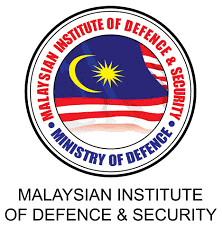Towards a Peaceful Sea - Auslandsbüro Malaysia
Fachkonferenz
Details
Executive Summary
Maritime security and challenges in the fish and biodiversity-rich South China Sea which also holds oil, gas and mineral reserves in high global demand, is making local and international media headlines in recent times. While Malaysia and countries in the region, along with the rest of the world, try to emerge from the devastating effects of the Covid-19 pandemic, they are concurrently concerned about public health, national security, and political and socio-economic stability as maritime security has its impact.
Unregulated, unreported and illegal fishing causing the depletion of fish catch is also affecting the livelihoods of peoples in the littoral states of the region. The South China Sea offers both challenges and opportunities. It is currently rife with debates among countries in the region contesting for territorial ownership rights. ASEAN members and other countries, including from Europe and the United States are forming their own strategic alliances. They are especially concerned as China incrementally claims more and more portions of the South China Sea that other nations consider is inconsistent with the United Nations Convention on Law of the Sea (UNCLOS). China on the other hand states that it is working within its rights and has demonstrated its willingness to work cooperatively with all countries in the region towards peace and stability.
As Australia joins the UK and the United States recently this year to form AUKUS, a strategic partnership in Southeast Asia among the three powerful nations, some commentators argue that the move is to contain China and also curtail its naval expansion in one of the world’s most strategic and commercially important sea communications lines. The EU, which has for decades invested in partnerships on many fronts with countries in the Indo Pacific region and ASEAN member countries, demonstrates collective concerns for peace at sea, predicated on international rules of order. The EU announced its Strategy for Cooperation in the Indo Pacific on 16 September 2021 and is keen to expand and deepen its investments and partnerships with Malaysia and the region on many fronts, including support for the centrality of ASEAN.
A litany of maritime challenges and national and transnational threats and problems, confront Malaysia and other Southeast Asian countries. The list includes, but is not limited to, freedom of navigation and faithful adherence to maritime Code of Conduct (CoC), the management of fishing and its vessels and crew, combatting human trafficking, drugs and contraband items, managing illegal immigrants and curtailing the spread of Covid-19 and its variants onshore and offshore, piracy, legal frameworks, maritime domain awareness and defence and enforcement personnel and assets, the high costs incurred on all these to the economy, and many other problems. They are all at the forefront of Southeast Asian governments and other stakeholders in the region’s strategic balance of power and influence.
What are the details of all these problems? How are countries in the South China Sea grappling with them and what are the diplomatic success stories (and failures if any) in managing maritime security? Can countries lining the South China Sea leverage on the strengths and resources of big powers and work in partnership with all countries to manage burden sharing and confidence building measures, all geared towards ensuring both safety and peace at sea?
In an attempt to answer all these questions and more, and to showcase some of the Southeast Asian countries’ and regional groupings’ and strategic alliances’ best practices in addressing maritime security, MiDAS, Ministry of Defence Malaysia, in partnership with KAS Office Malaysia, identified and invited a team of distinguished experts from Malaysia and five other countries across the globe, and convened the MiDAS-KAS Conference 2021 on the theme, Maritime Security Amidst Contemporaneous Challenges Towards A Peaceful Sea. The two-day virtual conference 2-3 November, 2021, attended by about 360 participants around the globe, covered three sub-themes: Challenges for a Maritime Nation Today, Existing Maritime Laws, Policies and Challenges and Economic Impact of Maritime Security.





